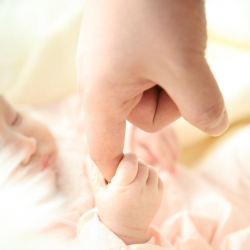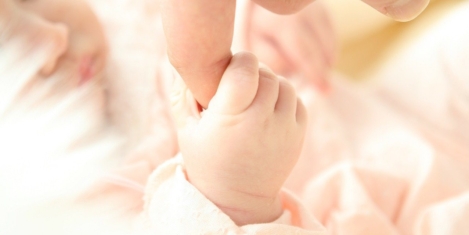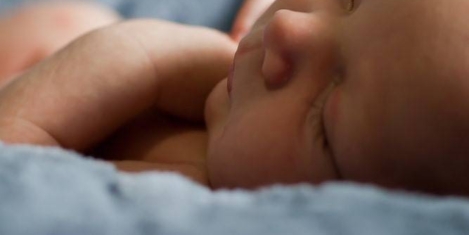April 29, 2020
Search Results for: maternity leave
February 13, 2020
Take-up of shared parental leave set to boom
by Jackie Le Poidevin • News, Workplace
 Employers should prepare themselves for a dramatic rise in staff taking shared parental leave, a new research report into shifting attitudes to flexible working and childcare for working parents has claimed. While only 7 percent of employees with children have taken up the opportunity of shared parental leave so far, 38 percent of those planning to have further children intend to do so when they have their next child, YouGov polling of 1,000 employees and 500 HR decision makers suggests. (more…)
Employers should prepare themselves for a dramatic rise in staff taking shared parental leave, a new research report into shifting attitudes to flexible working and childcare for working parents has claimed. While only 7 percent of employees with children have taken up the opportunity of shared parental leave so far, 38 percent of those planning to have further children intend to do so when they have their next child, YouGov polling of 1,000 employees and 500 HR decision makers suggests. (more…)
July 11, 2019
Take up of shared parental leave constrained by traditional attitudes
by Neil Franklin • Flexible working, Legal news, News
 Despite the introduction of shared parental leave rights, more than half of UK adults still think that women be the primary carers of babies and children, according to the latest British Social Attitudes Survey. Despite this, there has been a notable shift in attitudes over the last seven years, according to the researchers from the National Centre for Social Research. (more…)
Despite the introduction of shared parental leave rights, more than half of UK adults still think that women be the primary carers of babies and children, according to the latest British Social Attitudes Survey. Despite this, there has been a notable shift in attitudes over the last seven years, according to the researchers from the National Centre for Social Research. (more…)
April 11, 2019
Are these the best countries for parental leave worldwide?
by Neil Franklin • Legal news, News, Wellbeing, Workplace
 Following the TUC’s recent call for an overhaul of shared parental leave rights, a new interactive study created by Red Letter Days claims to display just how many babies are born every minute in 169 countries and what each has to offer its citizens when they become a parent, such as maternity and paternity leave as well as outlining the benefits of having both maternity and paternity leave in place. Estonia tops the list as one of the best countries for maternity leave, offering 62 weeks for new mums, while the United States remains at the bottom with zero weeks of guaranteed leave. (more…)
Following the TUC’s recent call for an overhaul of shared parental leave rights, a new interactive study created by Red Letter Days claims to display just how many babies are born every minute in 169 countries and what each has to offer its citizens when they become a parent, such as maternity and paternity leave as well as outlining the benefits of having both maternity and paternity leave in place. Estonia tops the list as one of the best countries for maternity leave, offering 62 weeks for new mums, while the United States remains at the bottom with zero weeks of guaranteed leave. (more…)
April 8, 2019
Overhaul of shared parental leave is already overdue, claims TUC
by Mark Eltringham • Flexible working, News, Wellbeing
 The TUC is calling for an overhaul of shared parental leave legislation just four years after its introduction. Last year only 9,200 new parents took shared parental leave – just 1 percent of those eligible to do so. The TUC believes take-up is low because the scheme is so low-paid (£145.18 per week) making it unaffordable for most fathers. It claims that large numbers of dads in insecure work, such as agency workers and those on zero-hours contracts, are not eligible for it. And currently men and women who are self-employed don’t get any shared leave rights at all. (more…)
The TUC is calling for an overhaul of shared parental leave legislation just four years after its introduction. Last year only 9,200 new parents took shared parental leave – just 1 percent of those eligible to do so. The TUC believes take-up is low because the scheme is so low-paid (£145.18 per week) making it unaffordable for most fathers. It claims that large numbers of dads in insecure work, such as agency workers and those on zero-hours contracts, are not eligible for it. And currently men and women who are self-employed don’t get any shared leave rights at all. (more…)
October 29, 2018
Majority of maternity returners say they lack support when they go back to work
by Neil Franklin • Flexible working, News, Wellbeing
 Lack of support for maternity returners among UK businesses has been uncovered in a new survey of professional, mainly management-level women. More than four fifths of pregnant women begin their maternity leave unhappy and lacking in confidence about work – and over a third feel so isolated when they return that they want to hand their notice in. MMB, a working parents’ website, surveyed more than 1,000 mothers, 72 percent of whom were in jobs at management level or above.
Lack of support for maternity returners among UK businesses has been uncovered in a new survey of professional, mainly management-level women. More than four fifths of pregnant women begin their maternity leave unhappy and lacking in confidence about work – and over a third feel so isolated when they return that they want to hand their notice in. MMB, a working parents’ website, surveyed more than 1,000 mothers, 72 percent of whom were in jobs at management level or above.
April 2, 2018
Take up of shared parental leave is held back by cultural inertia
by Paul Kelly • Comment, Flexible working, Workplace
 A recent report by the House of Commons’ Women and Equalities Committee, Fathers and the workplace, has brought into sharp focus the problems fathers have juggling participation in family life with their employment obligations. We are moving away from the traditional gender stereotypes of the father being the breadwinner and the mother being responsible for childcare. Today, many families have two parents in either full or part-time work, with dual income households being far more common now than just 30 years ago. The pace of technological change and the growing gig economy have both contributed significantly to this shift in working patterns. As a result, some of the UK’s laws are becoming outdated, as many laws were formulated on the assumption that it would usually be the woman within a family who would have responsibility for childcare.
A recent report by the House of Commons’ Women and Equalities Committee, Fathers and the workplace, has brought into sharp focus the problems fathers have juggling participation in family life with their employment obligations. We are moving away from the traditional gender stereotypes of the father being the breadwinner and the mother being responsible for childcare. Today, many families have two parents in either full or part-time work, with dual income households being far more common now than just 30 years ago. The pace of technological change and the growing gig economy have both contributed significantly to this shift in working patterns. As a result, some of the UK’s laws are becoming outdated, as many laws were formulated on the assumption that it would usually be the woman within a family who would have responsibility for childcare.
February 12, 2018
New government campaign sets out to increase take up of shared parental leave
by Neil Franklin • Flexible working, Legal news, News, Wellbeing
 A new government campaigned launched today encourages more parents to take up the offer of Shared Parental Leave in their child’s first year. The workplace right for eligible parents allows them to share up to 50 weeks of leave and 37 weeks of pay after having a baby. They can take time off separately or they can be at home together for up to 6 months. Around 285,000 couples every year are eligible but take up could be as low as 2 percent, according to the Department for Business, Energy & Industrial Strategy and around half of the general public are unaware that the option exists for parents.
A new government campaigned launched today encourages more parents to take up the offer of Shared Parental Leave in their child’s first year. The workplace right for eligible parents allows them to share up to 50 weeks of leave and 37 weeks of pay after having a baby. They can take time off separately or they can be at home together for up to 6 months. Around 285,000 couples every year are eligible but take up could be as low as 2 percent, according to the Department for Business, Energy & Industrial Strategy and around half of the general public are unaware that the option exists for parents.
November 22, 2017
New Acas guidance on preventing pregnancy and maternity discrimination at work
by Sara Bean • Flexible working, Legal news, News, Workplace
Acas has published new guidance to help employers create supportive workplaces for women during pregnancy and maternity leave. The employment advisory service says it received more than 14,000 calls last year about pregnancy and maternity issues, an increase of almost 10 percent on the previous year. The guidance offers employers advice on how to comply with the Equalities Act, which protects employees against pregnancy and maternity discrimination including how employees on maternity leave should be made aware of opportunities for promotion and training; pregnancy related absences must not be included in an employee’s absence record; and employees must not be dismissed or made redundant for any issue related to pregnancy or maternity leave or maternity pay.
April 5, 2017
Bumpy ride and slow uptake in first two years of shared parental leave rules 0
by Sara Bean • Features, Flexible working, Legal news, Workplace
 It is two years since the introduction of Shared Parental Leave (SPL), where couples were given the ability to share leave surrounding the arrival of a new addition to their family; and while sharing leave is seen to have a profound beneficial impact for the family, there are still plenty of barriers. According to research from My Family Care, one of the largest is that there is a sense that it involves a big risk with real concerns around the impact on a father’s career if they were to take more than two or three months off. A second report from the charity Working Families found that despite the initial slow take up of new rights, more than half of fathers would use Shared Parental Leave. However, snapshot figures for the first three months of 2016 showed that 3,000 new parents were taking up the new right. If the maternity leave figure is taken as indicative of the number of couples with new babies at the time the new figures are in line with the bottom of the government’s 2013 estimated take-up range – between two and eight per cent of fathers.
It is two years since the introduction of Shared Parental Leave (SPL), where couples were given the ability to share leave surrounding the arrival of a new addition to their family; and while sharing leave is seen to have a profound beneficial impact for the family, there are still plenty of barriers. According to research from My Family Care, one of the largest is that there is a sense that it involves a big risk with real concerns around the impact on a father’s career if they were to take more than two or three months off. A second report from the charity Working Families found that despite the initial slow take up of new rights, more than half of fathers would use Shared Parental Leave. However, snapshot figures for the first three months of 2016 showed that 3,000 new parents were taking up the new right. If the maternity leave figure is taken as indicative of the number of couples with new babies at the time the new figures are in line with the bottom of the government’s 2013 estimated take-up range – between two and eight per cent of fathers.
December 14, 2016
Lack of free childcare dissuades workers from shared parental leave 0
by Sara Bean • Flexible working, Legal news, News, Workplace
 Just 5 percent of new fathers and 8 percent of new mothers have opted for Shared Parental Leave (SPL) since its introduction in April 2015 a new report claims. Just one organisation in five (21 percent) said they had received requests from male employees to take up SPL since April 2015 and in two-thirds (67 percent) of organisations with mothers eligible for SPL, none have opted in. This low take-up of (SPL) and the lack of affordable childcare options for parents with 0-2 year-olds are both major problems that need to be addressed to support working parents more effectively, according to ‘Labour Market Outlook: Focus on Working Parents’ from the CIPD. The survey of over 1,000 HR professionals also suggests that the lack of free childcare for 0-2 year-olds could be having a negative impact on women returning to work after maternity leave.
Just 5 percent of new fathers and 8 percent of new mothers have opted for Shared Parental Leave (SPL) since its introduction in April 2015 a new report claims. Just one organisation in five (21 percent) said they had received requests from male employees to take up SPL since April 2015 and in two-thirds (67 percent) of organisations with mothers eligible for SPL, none have opted in. This low take-up of (SPL) and the lack of affordable childcare options for parents with 0-2 year-olds are both major problems that need to be addressed to support working parents more effectively, according to ‘Labour Market Outlook: Focus on Working Parents’ from the CIPD. The survey of over 1,000 HR professionals also suggests that the lack of free childcare for 0-2 year-olds could be having a negative impact on women returning to work after maternity leave.























August 9, 2018
Is driver behind the widening parental leave gap a lack of rights in the gig economy?
by Sara Bean • Comment, Flexible working, Legal news, News, Workplace